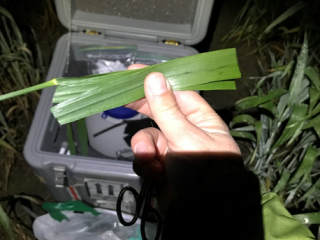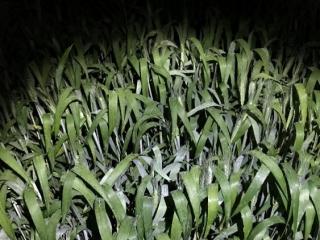

Strengthening wheat crops against frost
Project name
Developing metabolite and lipid biomarkers to select for reduced frost sensitivity in wheat
GRDC code
CSP2310-008RTX
Boosting wheat profits
In Australia, frost is a major threat to wheat crops, especially during spring.
Frost can harm the formation and development of grains, leading to lower yields and lower profits for farmers.
Reducing sensitivity to frost is crucial to ensuring the viability of growing grain crops in regions that experience frost damage.
Even a small improvement, such as making wheat less sensitive to frost during flowering by one-degree Celsius, could bring an extra 360 million to wheat farmers every year.
This project, with support from the Grains Research and Development Corporation (GRDC) seeks to validate whether certain plant protective mechanisms or compounds can help it withstand frost better.
The results will establish whether the manipulation of these traits represents a feasible route that wheat breeders could take to improve crop yields in frost-prone cropping environments.
Australian breeders set to benefit
By 2027, researchers are set to get an understanding of how wheat traits impact frost sensitivity in both controlled environments and real fields.
This information will be shared with Australian wheat breeding companies.
The main outcome, by 2028, is for wheat breeders in Australia to have tools to create wheat varieties that can better withstand frost.
Field experiments
The project involves several modules and activities over multiple years.
Module 1: Germplasm Selection
Over the first year of the project, the team will assemble a panel of around 400 wheat lines with known or potential variations in frost tolerance and include lines from past studies and diversity panels.
Then, wheat spikes from field grown plants will be assessed for non-invasive digital phenotyping of spikelet and grain mapping using the APPF CT scanner.
Module 2: Identification of Lines with Reduced Frost Sensitivity
Field experiments in different locations will be conducted over the next 3-years, to observe performance of selected lines.
These will occur in conjunction with controlled environments testing.
Module 3: Metabolite and Lipid Analysis
Researchers will analyse metabolites and lipids in wheat leaves to understand how they respond to frost and use advanced methods such as mass spectrometry for detailed analysis.
Module 4: Selection Tool Development
From there, tools will be developed for selecting frost-resistant wheat based on hyperspectral technology and genetic markers.
Leaf reflectance measurements will be used to predict genetic variations in metabolites and lipids associated with frost tolerance.
Module 5: Data Infrastructure
The research team will establish a data storage system for handling large amounts of genetic and phenotypic data and make use of high-performance computing for data processing.
DPIRD Research Scientist Dr Brenton Leske will manage the site at Dale in WA.
The other locations selected for field experiments include Mintaro in South Australia and Wagga Wagga in New South Wales.
Partners/Collaborators
GRDC
CSIRO
Charles Sturt University
South Australian Research and Development Institute (SARDI)
Agriculture Victoria
LaTrobe University
University of Western Australia Australian Grain Technologies (AGT)
Analytics for the Australian Grains Industry (AAGI)
Contact
Dr Brenton Leske
DPIRD Research Scientist
E: Brenton.Leske@dpird.wa.gov.au
M: (08) 9368 3161
